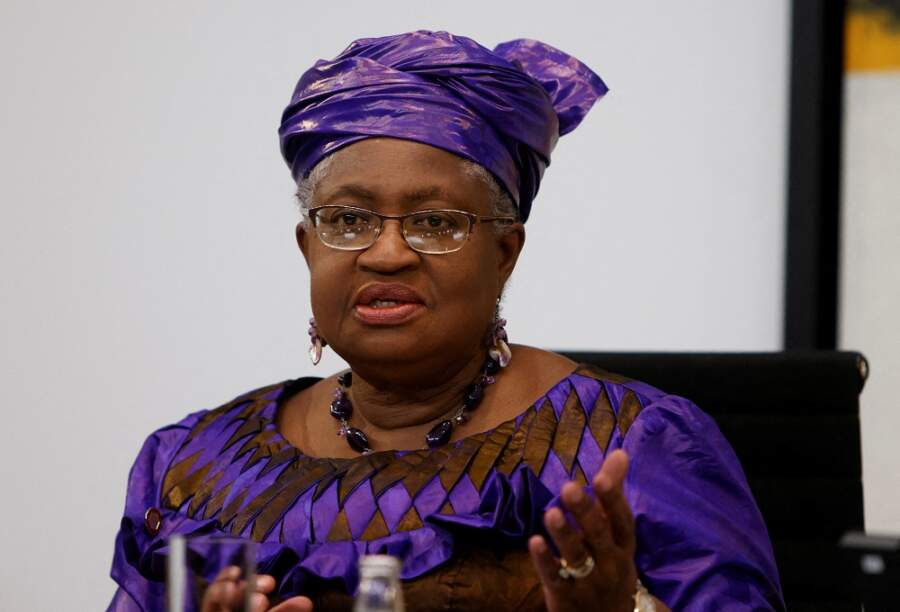
GENEVA (Reuters) – The World Trade Organization raised its forecast for global trade growth this year, but still predicted a slowdown and warned of risks from the Ukraine war, geopolitical tensions, food insecurity, inflation and monetary policy tightening.
The Geneva-based trade body said on Wednesday that merchandise trade volumes would increase by a “subpar” 1.7% in 2023. That was up from its October estimate of 1.0% but below the 2.6% average for the 12 years since trade volumes collapsed following the global financial crisis.
For 2022, it said a downturn in the final quarter resulted in trade growth of 2.7%, lower than its previous 3.5% forecast.
The WTO said goods trade growth should rebound to 3.2% in 2024 as economic expansion picks up, but warned this forecast was particularly uncertain, with multiple downside risks.
WTO Director-General Ngozi Okonjo-Iweala said the threats included continuation of the war in Ukraine and other geopolitical tensions, resurgent inflation and the impact of tightening monetary policy.
The WTO said trade growth had held up despite global tensions and the threat of fragmentation into competing trading blocs, which could reduce global economic output by 5%, had so far been avoided. But this remained a risk.
“If we see investment patterns following the talk, we see now, this might indeed have an impact on trade in the future that we think would be detrimental,” Okonjo-Iweala told Reuters.
The WTO also said wealthy countries needed to be on the lookout for signs of a food crisis triggering hunger in low-income countries.
It was unclear how the war would impact planting in Ukraine, a major grains producer, while flooding or drought from climate change could trigger a major crop failure elsewhere. Smaller farmers in Africa in particular needed affordable fertilisers and other inputs to be able to increase production.
Okonjo-Iweala said it was vital to limit export restrictions on food. Some 35 countries have imposed 100 curbs on food and fertilisers since Russian invaded Ukraine in February 2022. Those eased in mid-2022, but had since risen to 67 at the start of April 2023.
The WTO’s forecast does not cover services, but the WTO said international tourism was on a path to full recovery as COVID-19 restrictions are lifted, and that travel demand did not seem to have been hit by economic uncertainty.
China’s reopening of its borders should also boost regional and global travel, the WTO said. Chinese tourists are the global top spenders.
(Reporting by Philip Blenkinsop, Gabrielle Tétrault-Farber; Editing by Catherine Evans)


